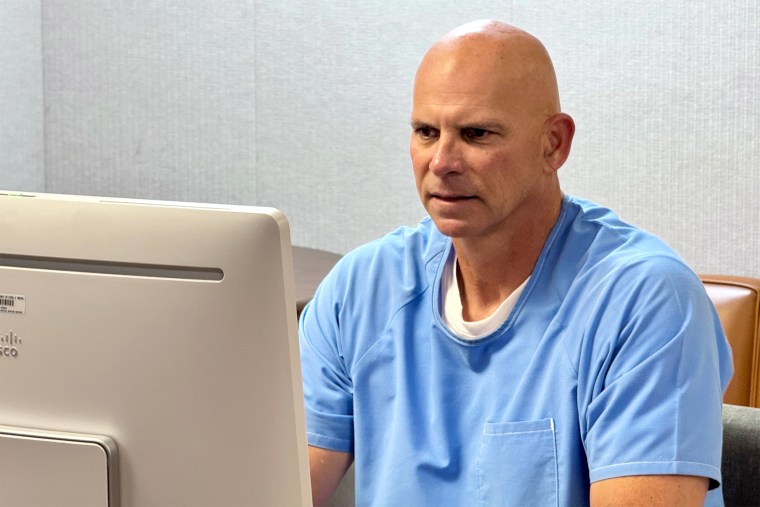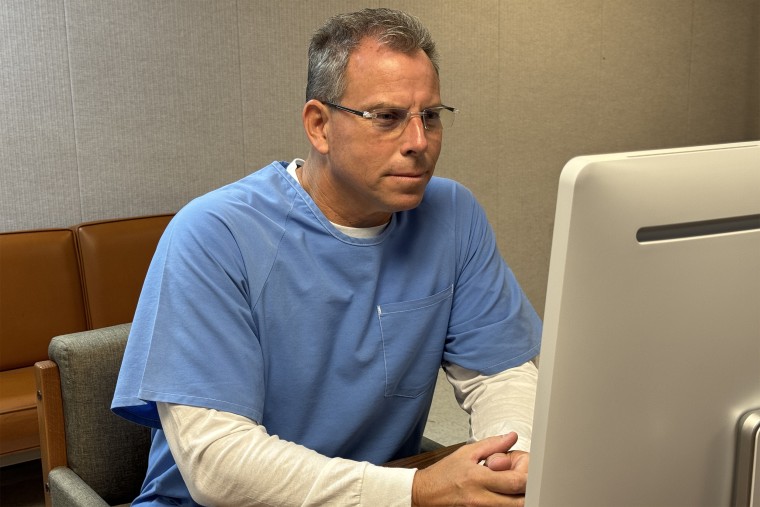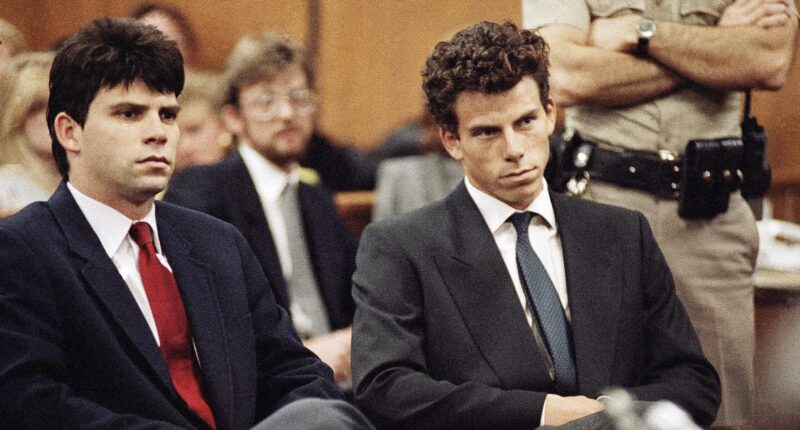Share this @internewscast.com
Lyle Menendez should not be released from prison for the murder of his parents more than three decades ago, California parole officials said Friday.
The decision was made on Friday night after an 11-hour hearing, just over a day after Erik Menendez, the younger brother of Lyle Menendez, was also denied parole for their roles in the murder of their parents, Jose and Kitty Menendez, on August 20, 1989, in Beverly Hills.
Similar to his brother, Lyle Menendez will be eligible for parole in three years. However, he might have a hearing sooner based on the result of an administrative review.
Different officials conducted the consecutive hearings in this high-profile case, which gained renewed attention after being featured in streaming series and due to ongoing advocacy efforts. The push for their release underscores the ongoing debate around rehabilitation versus incarceration.
During Friday night’s proceedings, parole commissioner Julie Garland talked about 57-year-old Lyle as a model inmate, noting his apparent genuine remorse and potential for change.
“However, despite those outwardly positive attributes,” Garland commented, “you continue to battle with anti-social personality traits such as deception, minimization, and rule-breaking, which linger beneath the surface.”
Both brothers committed prison violations that were a focal point during their parole hearings. Lyle’s most recent violation involved possessing a cell phone in March 2024.
In a statement Friday night, his family said they were disappointed with the denials but remained “incredibly proud of how Erik and Lyle showed up — with honesty, accountability, and integrity.”
“This is not the end of the road,” the family said, noting that the siblings will go before the board again and have a separate and ongoing court proceeding that seeks to overturn their convictions.
They have also sought clemency in a still-pending application from California Gov. Gavin Newsom.
“In the meantime, we know they will take time to reflect on the Board’s recommendations and will continue to lead, mentor, and build programs that support rehabilitation and hope for others,” the family said.

‘Unreasonable risk’
The denials came three months after a Los Angeles judge concluded that the brothers do not pose an “unreasonable risk” and resentenced them to 50 years to life for the 1989 murders of their parents — a decision that effectively canceled their previous prison terms of life without the possibility of parole and made them eligible for “suitability” hearings immediately.
Lyle’s hearing began Friday at 9:03 a.m., hours after a parole commissioner came to the opposite conclusion as the judge and said that Erik, 54, posed an “unreasonable risk” and should not be freed.
Wearing a light blue jumper and seated in a chair at Richard J. Donovan Correctional Facility in San Diego County, Lyle noted the grim anniversary of his parents’ murder two days ago and said he takes responsibility “for all this pain.”
“My mom and dad did not have to die that day,” he said, adding: “I will never be able to make up for the harm and grief I caused everyone in my family. I am so sorry to everyone, and I will be forever sorry.”
Friday’s hearing was delayed when a news outlet obtained and published an audio recording of Erik’s parole proceedings — a move the California Department of Corrections and Rehabilitation, which oversees the parole board, had prohibited.
An attorney for the brothers, Heidi Rummel, hammered the board for failing to follow its own rules. And family members who were testifying in support of Lyle abandoned their victim impact statements.
“We’re not confident in the board’s ability to protect the victims at this point,” Rummel said.
Self-defense claim
Erik and Lyle Menendez were convicted of first-degree murder after two sensational trials that spanned three years in the mid-1990s. The first, which was televised, ended with a hung jury.
Both testified in the initial proceedings, claiming they killed their parents, José and Kitty Menendez, in self-defense after years of abuse at their father’s hands. Only Erik testified at the second trial, which ended with convictions in 1996.
Prosecutors long disputed their claims of self-defense and pointed to the grim specifics of the killings — Lyle reloaded his shotgun before he shot his mother in the face — and they described the killings as ruthless and financially motivated.
Many family members have been outspoken advocates for the brothers’ freedom and pointed to their deeds behind bars, which include attending college, helping disabled inmates and establishing a “beautification” project at their prison.
The Los Angeles County District Attorney’s Office has had different views on the brothers’ push for freedom. Weeks before his ouster last year, the county’s former top prosecutor, George Gascón, said the siblings had been “exceptional” inmates and recommended that they be resentenced.
Nathan Hochman, his successor, tried — and failed — to withdraw that recommendation. He said the siblings had not taken responsibility for more than a dozen lies he said they told about the murders, including the claim that they killed their parents in self-defense.
Hochman said that the parole board made the right decision in denying parole for both Lyle and Erik Menendez.
“For decades, Lyle Menendez has refused to accept full responsibility for his actions,” Hochman said in a statement Friday. “Along with his brother, he has clung to a fabricated self-defense story, repeatedly shifting narratives and enlisting others to bolster false claims.”

Denial for Erik Menendez
Parole Commissioner Robert Barton, who presided over Erik’s hearing, said he was impressed by the many statements of support from relatives but cited a series of prison violations, including inappropriate behavior with visitors, drug smuggling and misuse of state computers.
“Contrary to your supporters’ beliefs, you have not been a model prisoner, and frankly we find that a little disturbing,” Barton said.
Barton said the seriousness of the murders is “not a primary reason for this denial. It’s still your behavior in prison.”
“You have two options,” Barton told Erik Menendez. “One is to have a pity party … and then you become a self-fulfilling prophecy, probably not getting granted next time. Or you can take to heart what we discussed.”










